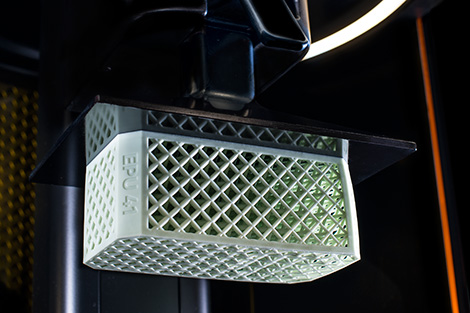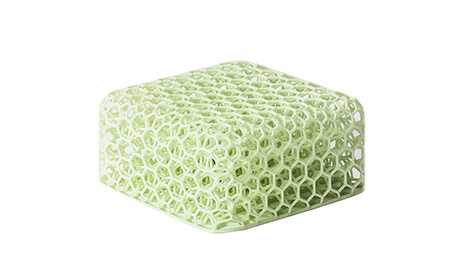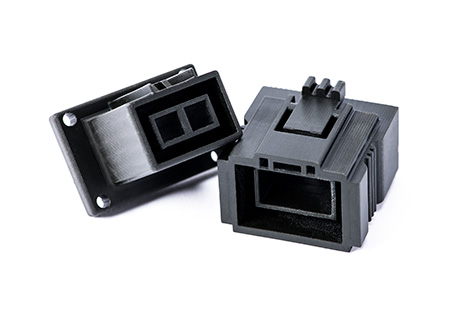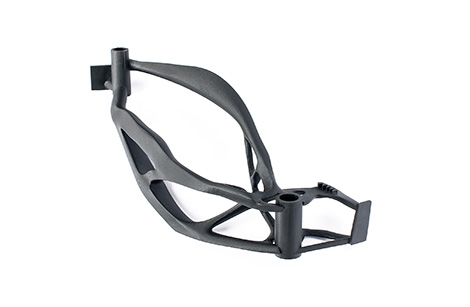
EPU 41 is the latest functional material ready for use straight off Carbon’s 3D printers
Carbon’s library of tunable elastomer lattices and software tools has been boosted further by the announcement of EPU 41 to its 3D printable elastomeric material family.
Well-suited for producing the kinds of elastomeric lattice geometries that can outperform traditional foams, EPU 41 has a higher resilience and better low-temperature performance compared to EPU 40, and its combination of tear strength, energy return, and elongation make it perfect for cushioning, impact absorption, and comfort.
EPU 41 is also said to perform very well in functional testing, including fatigue, hydrolysis, UV-stability, and plastic deformation tests.

A lattice puck made with EPU 41, ready for use in consumer applications
Interestingly, EPU 41 is offered only in five-litre bulk packaging, and is the second material (after Rigid Polyurethane 70) to be offered under the Carbon production-scale materials pricing of $150 per litre.
This requires an MMD (meter, mix, and dispense) for proper dispensing of the material in bulk quantities.

T2 electrical connector made with EPX 82
Additionally, Carbon has announced EPX 82, a high-strength engineering material with a heat-deflection temperature of 125°C and good impact strength, making it ideal for applications requiring a balance of strength, toughness, and thermalcycling durability such as connectors, brackets, and housings in the automotive and industrial sectors.
Its mechanical properties are said to be comparable to lightly glass-filled thermoplastics (e.g. 20% GF-PBT, 15% GFNylon) and meet the USCAR-2 fluid compatibility standards.
“The world’s most innovative companies are adopting digital 3D Manufacturing and Carbon is helping accelerate this growth through our expanding portfolio of production-ready materials,” said Carbon materials VP Jason Rolland.
“At Carbon, we are constantly pushing the boundaries to create solutions for producing more durable, higher quality end-use parts. The introduction of EPX 82 and EPU 41 is a testament to this, and further validates our vision to fundamentally change how the world designs, engineers, makes and delivers products.”

Topology optimised lever made with EPX 82, used in auto and industrial load-bearing functional parts






